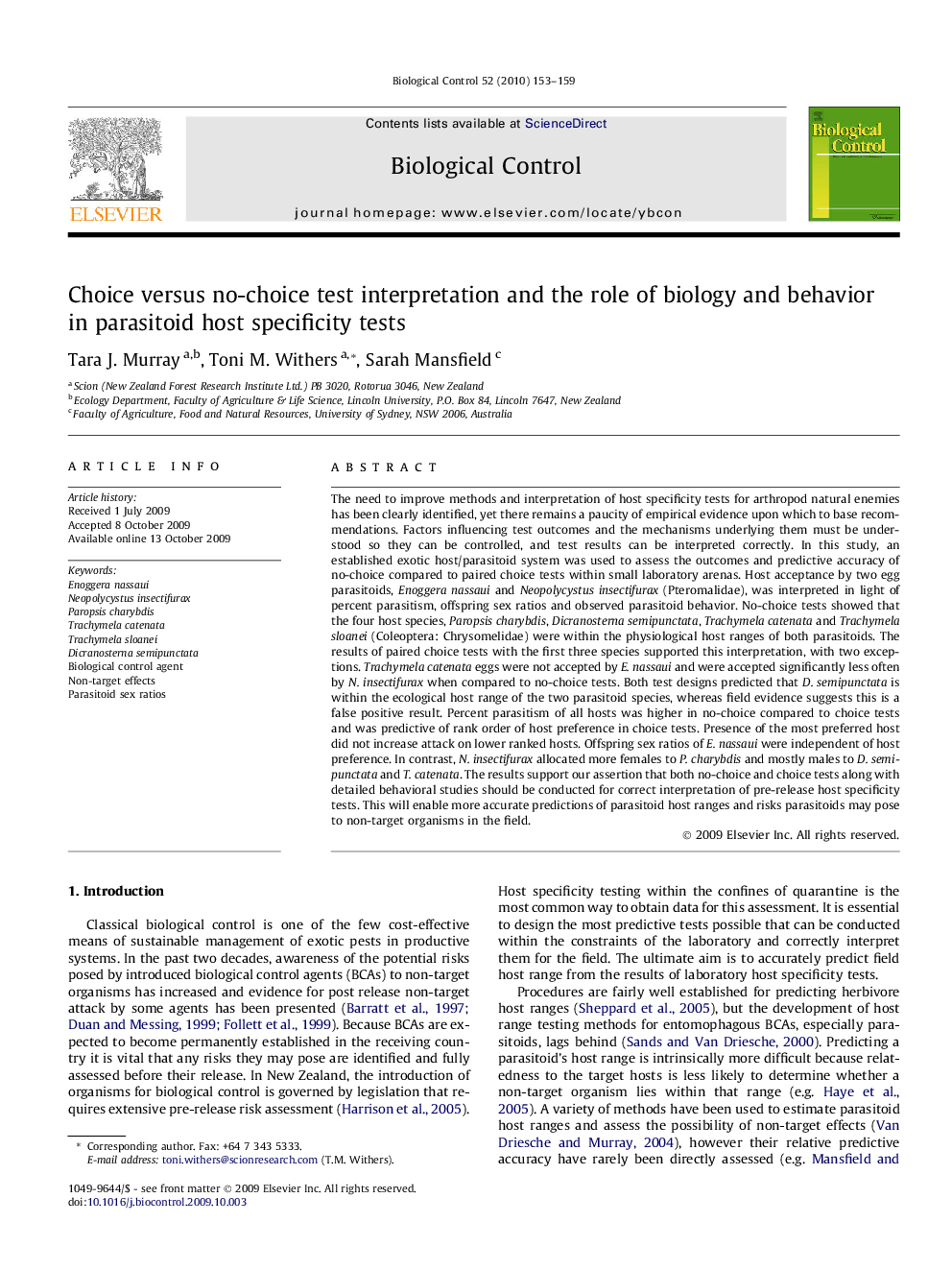| Article ID | Journal | Published Year | Pages | File Type |
|---|---|---|---|---|
| 4504442 | Biological Control | 2010 | 7 Pages |
The need to improve methods and interpretation of host specificity tests for arthropod natural enemies has been clearly identified, yet there remains a paucity of empirical evidence upon which to base recommendations. Factors influencing test outcomes and the mechanisms underlying them must be understood so they can be controlled, and test results can be interpreted correctly. In this study, an established exotic host/parasitoid system was used to assess the outcomes and predictive accuracy of no-choice compared to paired choice tests within small laboratory arenas. Host acceptance by two egg parasitoids, Enoggera nassaui and Neopolycystus insectifurax (Pteromalidae), was interpreted in light of percent parasitism, offspring sex ratios and observed parasitoid behavior. No-choice tests showed that the four host species, Paropsis charybdis, Dicranosternasemipunctata, Trachymelacatenata and Trachymela sloanei (Coleoptera: Chrysomelidae) were within the physiological host ranges of both parasitoids. The results of paired choice tests with the first three species supported this interpretation, with two exceptions. Trachymela catenata eggs were not accepted by E. nassaui and were accepted significantly less often by N. insectifurax when compared to no-choice tests. Both test designs predicted that D. semipunctata is within the ecological host range of the two parasitoid species, whereas field evidence suggests this is a false positive result. Percent parasitism of all hosts was higher in no-choice compared to choice tests and was predictive of rank order of host preference in choice tests. Presence of the most preferred host did not increase attack on lower ranked hosts. Offspring sex ratios of E. nassaui were independent of host preference. In contrast, N. insectifurax allocated more females to P. charybdis and mostly males to D. semipunctata and T. catenata. The results support our assertion that both no-choice and choice tests along with detailed behavioral studies should be conducted for correct interpretation of pre-release host specificity tests. This will enable more accurate predictions of parasitoid host ranges and risks parasitoids may pose to non-target organisms in the field.
